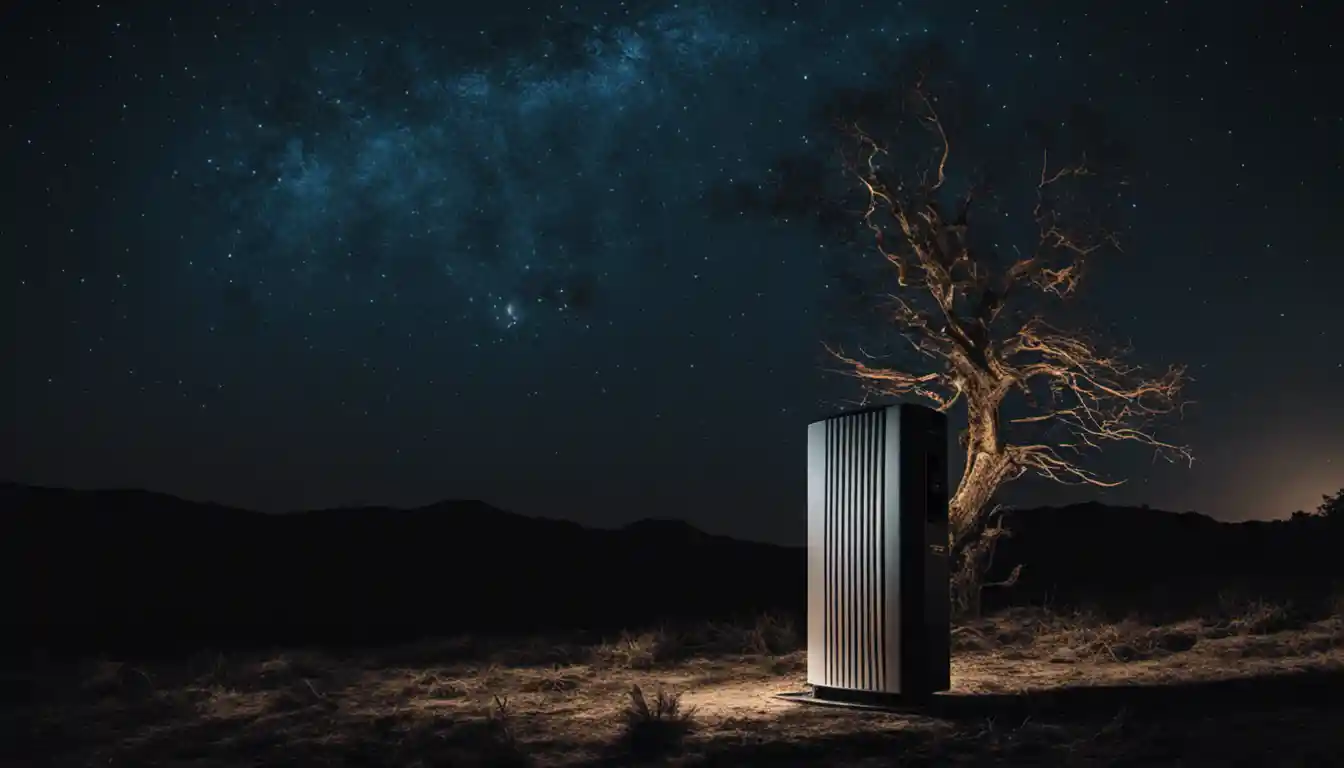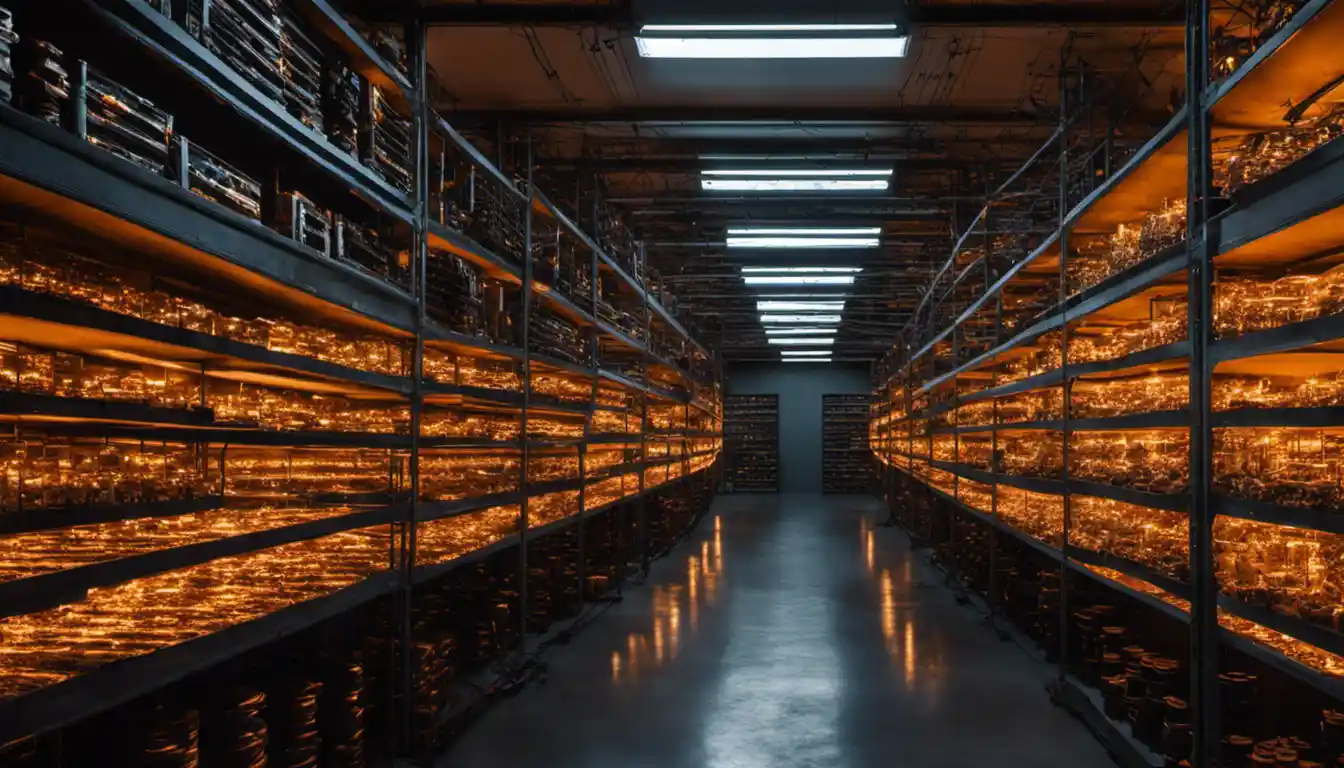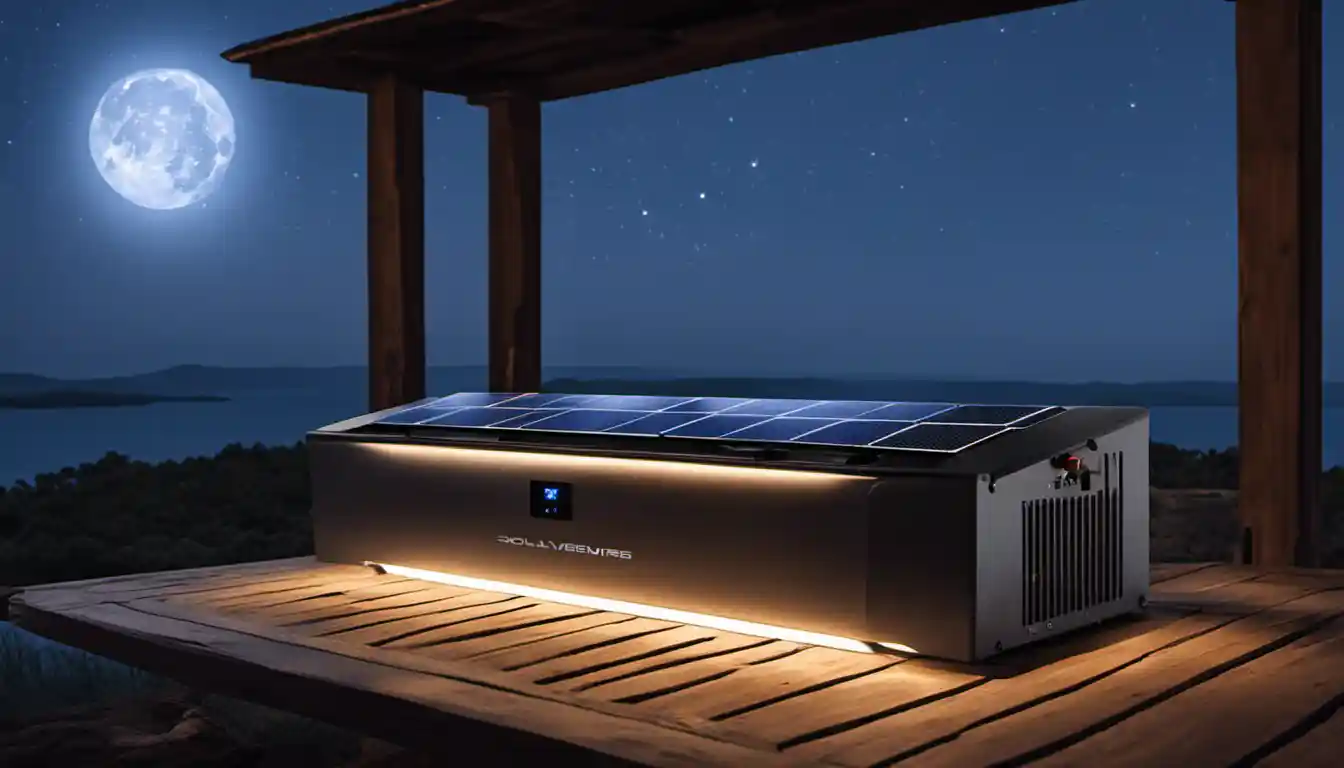Understanding Solar Inverters and Their Functionality
No, a solar inverter does not work at night. This is because solar inverters require sunlight to produce energy, so when the sun goes down, they stop producing electricity.
When we start discussing the functionality of solar power systems, the role of solar inverters is indisputable. These devices efficiently convert direct current (DC) harnessed from your solar panels into alternating current (AC), which your home appliances and electrical system can utilize.
But when the questions like “does solar inverter work at night” or “do solar inverters turn off at night” arise, it’s important to delve into the intricate workings of these appliances to find the answers, which is exactly what we’ll do in this article.
Brief Overview of a Solar Inverter
The first segment of our journey familiarizes you with the mysterious solar inverter. Essentially, a solar inverter is an advanced piece of tech that steps in where your solar panels leave off. Your solar panels generate electricity in the form of DC. But most of the utilities within your home require AC to function optimally. This is where a solar inverter steps up to the plate, effectively inverting that DC current to AC. You can find a more in-depth look at solar inverters here.
Role of a Solar Inverter in a Solar Power System
Solar inverters are akin to the brain of your solar power system. They engage in constant communication with the grid, gauging production levels, and ensuring that excess power is exported back to the grid. In the event of a grid failure, your inverter steps in to ensure that no backfeed of power occurs, keeping lineworkers safe from electric shocks.
Different Types of Solar Inverters
Solar inverters come in various types, each with its own unique attributes. Some of these include string inverters, central inverters, microinverters, and battery inverters. The choice depends on the particularities such as size, design, and layout of your solar power system.
Detailed Exploration of Solar Inverters’ Functioning at Night
“Does solar inverter work at night?” To adequately address this concern, let’s delve into the functionality of solar inverters and what happens when night falls.
Do Solar Inverters Turn Off at Night?
Quite simply, yes, they do. Once the sun sets and the production of DC power halts, the role of a solar inverter turns dormant. However, even at night, the inverter remains in standby mode, ready for a new day.
Factors Affecting Solar Inverter Performance at Night

The absence of sunlight isn’t the only factor that impacts solar inverter performance at night. Other influences may include temperature drops and the utilisation of any stored energy reserves in linked battery systems, affecting the overall energy availability during nighttime hours.
Why Solar Inverters Cease to Work at Night
Role of Sunlight in Powering Solar Inverters
Solar inverters are wholly reliant on sunlight for their operations. They use the DC power generated by the solar panels exposed to sunlight, convert it to AC and supply it to your home or export to the grid. When night falls, there’s a cessation of this crucial fuel, causing the inverter to halt operations.
Inadequate Solar Energy at Night
While it might seem like an obvious point, it is critical to emphasize that, in absence of sunlight, solar energy production simply doesn’t happen at night. This reality directly affects the action of solar inverters and contributes to their nocturnal dormancy.
Possible Impact of Solar Inverters Shutting Down at Night
Energy Availability During Nighttime
The availability of energy during the night as a result of solar inverters shutting down is often a worry for many people. But with the right setup–a battery storage system, for instance–you should have sufficient power stored from the surplus energy produced during the day.
Battery Life and Energy Storage

When your solar inverter shuts down at night, it can influence the life span of your battery and its storage potential. Without the inverter in action, there’s no new energy produced to charge the batteries, and you begin to rely on your stored energy.
Ways to Optimize the Use of Solar Inverters at Night
Considering Hybrid Solar Inverters
One solution to ensure optimal use of your solar inverter even when the sun sets is to consider a hybrid solar inverter. This type of inverter not only converts DC to AC but also harbors the capability to charge a battery system for later use – rendering them perfect for nighttime energy needs.
Importance of Battery Backup Systems
By integrating a battery backup system with your solar power setup, you can store excess energy generated during the day for use during the night. As a result, even if your solar inverter does not work at night, you are not left completely powerless.
Clarifying Common Misconceptions about Solar Inverters’ Night Functioning
Solar Inverters and Nighttime Power Production
A prevalent misconception is that solar inverters are capable of producing power at night. In truth, without sunlight, there is no power production, rendering the inverters inactive.
Solar Inverter Draining Battery Issues

Another common fallacy is the belief that an inactive solar inverter at night drains power from the connected batteries. However, solar inverters are designed to go into standby mode during the night to prevent battery discharge.
Evaluating the Alternatives to Night-time Solar Inverter Use
Using Non-solar Sources of Energy at Night
When solar inverters are not working, other sources of energy, such as grid power or diesel generators, may be used during the night. Making use of these options can effectively “fill in the gaps” left when your solar inverter ceases to function at night.
Deploying Energy Storage Solutions
A popular alternative or supplement to solar inverters is energy storage solutions, such as home batteries. These systems can store excess solar energy produced during the day for use when the sun goes down.
Shortcomings of Current Solar Inverter Nighttime Operation and Future Innovation Outlook
Technological Constraints
Due to the inherent technological constraints of solar inverters, they are bound by the availability of sunlight and cannot operate at night. However, the integration of battery systems and the progression of solar energy technology offer promising solutions.
Innovations in the Pipeline to Overcome the Night-time Solar Inverter Shortfalls
The industry is persistently innovating to create more efficient and versatile solar inverters capable of delivering dependable power round the clock. Researchers are honing ways to make solar inverters ‘smart’ – better energy management, leveraging predictive data, and more reliable power supply, looking beyond the barriers of day and night.
Life does not stop when night falls; it only evolves and changes shape. The same can be said for the solar power world. Even though solar inverters do not operate at night, with the increasing technological advancements and a better understanding of solar systems, there’s a bright future lighting the path for solar power – day and night.



